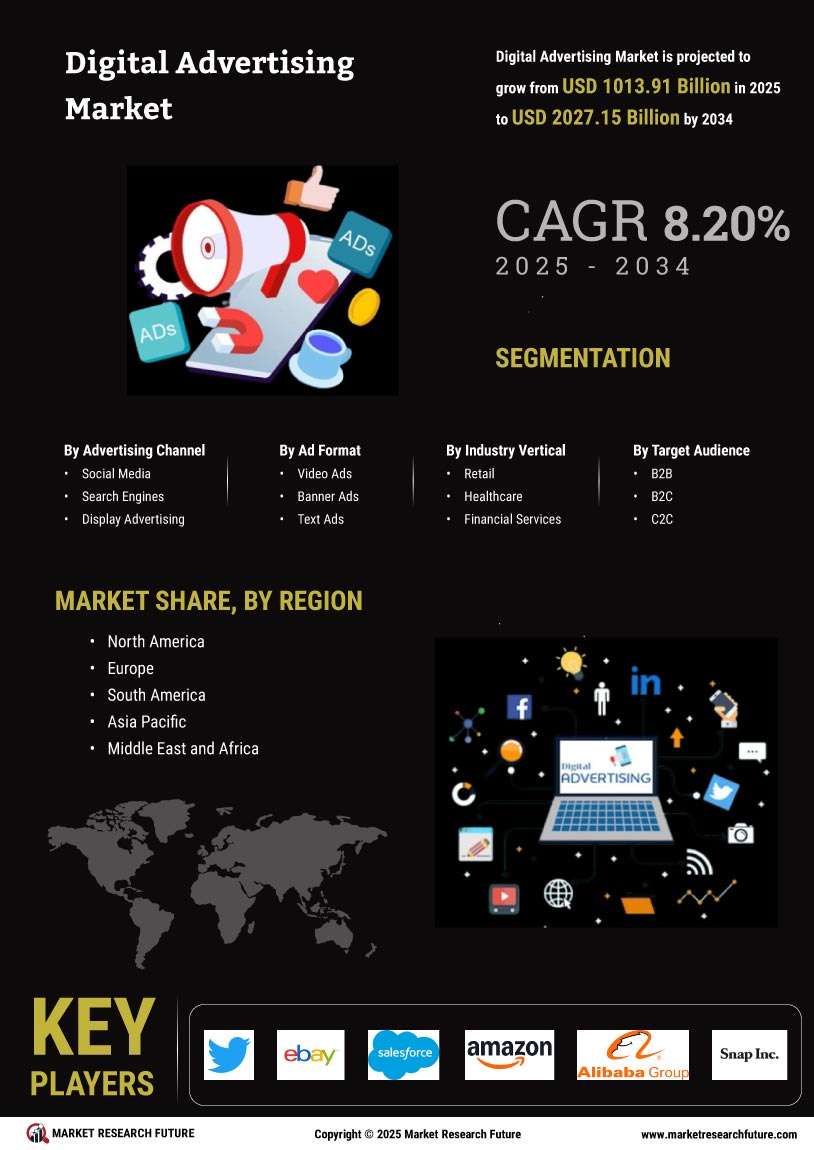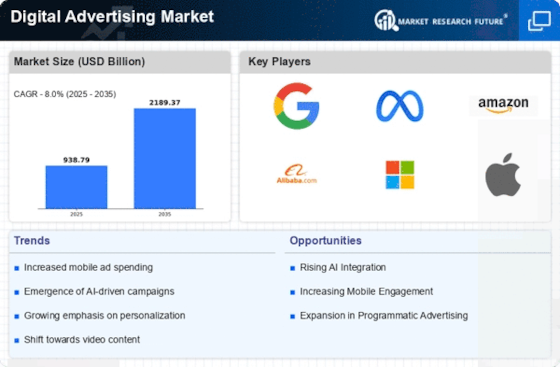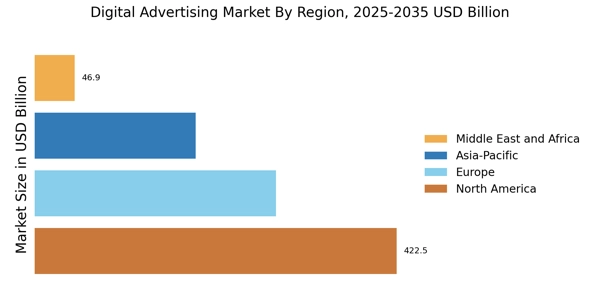Rise of Mobile Advertising
The proliferation of smartphones and mobile devices has transformed the Digital Advertising Market. As of 2025, mobile advertising accounts for a substantial portion of total digital ad spending, with estimates suggesting it could reach over 70% of the market. This shift is driven by the increasing time consumers spend on mobile applications and social media platforms. Advertisers are adapting their strategies to optimize for mobile formats, including video ads and interactive content. The emphasis on mobile-first strategies indicates a significant evolution in consumer behavior, compelling brands to engage users through mobile-friendly experiences. Consequently, the Digital Advertising Market is witnessing a surge in mobile ad investments, as businesses recognize the necessity of reaching audiences where they are most active.
Growth of Video Advertising
Video content continues to dominate the Digital Advertising Market, with its effectiveness in capturing audience attention. By 2025, video advertising is projected to constitute a considerable share of digital ad expenditures, driven by platforms such as YouTube, TikTok, and Instagram. The immersive nature of video allows brands to convey messages more dynamically, leading to higher engagement rates. Furthermore, advancements in technology, such as 5G, enhance video streaming quality, making it more appealing for advertisers. As consumers increasingly prefer video content over static images, the Digital Advertising Market is likely to see a continued rise in video ad formats, including live streaming and short-form videos, which cater to evolving consumer preferences.
Increased Focus on Data Privacy
As concerns over data privacy intensify, the Digital Advertising Market is adapting to new regulations and consumer expectations. The implementation of stricter data protection laws, such as GDPR and CCPA, has prompted advertisers to rethink their data collection and usage practices. By 2025, companies are likely to prioritize transparency and ethical data usage, which may reshape targeting strategies. This shift could lead to a greater emphasis on first-party data collection, as brands seek to build trust with consumers. Consequently, the Digital Advertising Market may experience a transformation in how advertisers approach audience segmentation and personalization, balancing effective marketing with respect for consumer privacy.
Emergence of Programmatic Advertising
Programmatic advertising is revolutionizing the Digital Advertising Market by automating the buying and selling of ad space. This technology enables advertisers to target specific audiences with precision, utilizing data analytics to optimize campaigns in real-time. As of 2025, programmatic ad spending is expected to surpass traditional ad buying methods, reflecting a shift towards data-driven decision-making. The efficiency and effectiveness of programmatic advertising allow brands to maximize their return on investment, as they can reach the right audience at the right time. This trend indicates a broader acceptance of technology in advertising strategies, positioning the Digital Advertising Market for continued growth as more businesses adopt programmatic solutions.
Integration of Augmented Reality (AR)
The integration of augmented reality (AR) into advertising strategies is emerging as a transformative trend within the Digital Advertising Market. By 2025, AR is expected to enhance consumer engagement by providing interactive and immersive experiences. Brands are increasingly leveraging AR to create unique advertising campaigns that allow consumers to visualize products in their own environments. This innovative approach not only captures attention but also fosters a deeper connection between consumers and brands. As AR technology becomes more accessible, the Digital Advertising Market is likely to see a rise in AR-driven campaigns, which could redefine how products are marketed and sold, ultimately enhancing the overall consumer experience.

















